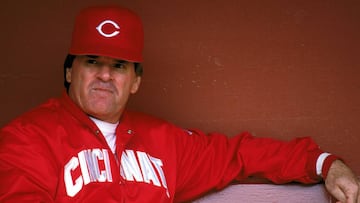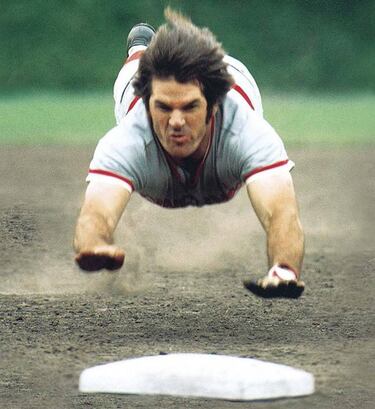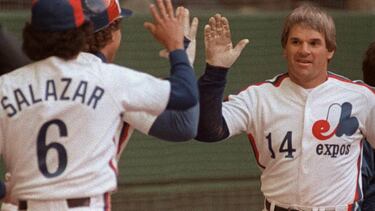Why was Pete Rose banned from baseball for life in 1989?
On August 24, 1989, baseball’s all-time hits leader became its most notorious exile. The man with 4,256 career hits was banned for life from the sport he loved.


Once a symbol of baseball greatness, Pete Rose experienced a tragic and controversial conclusion to his remarkable career. On August 24, 1989, the man known for his hustle and determination was permanently banned from Major League Baseball (MLB) due to allegations of illegal gambling. His downfall marked one of the darkest moments in sports history, prompting ongoing discussions about integrity, redemption, and the consequences of mistakes in sports.
Rose, famously nicknamed “Charlie Hustle,” was much more than a player. Over a storied 24-year career, he shattered records and became a symbol of passion and intensity on the field. With an unmatched 4,256 hits, the most in MLB history, Rose seemed destined for eternal glory. He was a 17-time All-Star, a three-time World Series champion, and the living embodiment of the American dream—rising from humble beginnings to become one of the most revered athletes in the game.
Johnny Bench, his former teammate, once called him “the most physically and mentally tough player I’ve ever seen,” praising Rose’s relentless drive. Fans adored him for his headfirst slides and unwavering commitment to every play. Yet behind these accolades, a shadow loomed over Rose’s legacy, ultimately tarnishing his remarkable career.

In the late 1980s, rumors surfaced linking Rose to illegal gambling. Allegations suggested that he had placed bets on baseball games, including those involving his team, the Cincinnati Reds. The notion that a baseball icon would bet on the very games he participated in shook the sport to its core. Gambling on baseball was a cardinal sin, violating the sacred rules designed to protect the sport’s integrity.
The “Dowd Report”
As whispers grew louder, MLB launched an investigation in 1989, spearheaded by Commissioner Bart Giamatti. John Dowd, a special counsel appointed to the case, compiled a 225-page report, later known as the “Dowd Report,” which detailed Rose’s gambling activities. The findings were damning: Rose had bet on 52 Reds games in 1987, wagering a minimum of $10,000 a day. Despite Rose’s repeated denials, the evidence—ranging from phone records to betting slips—was overwhelming.
Rose fought fiercely to clear his name as the scandal unfolded, even filing a lawsuit against Commissioner Giamatti in federal court. However, his efforts were in vain. On August 24, 1989, in a somber press conference, Giamatti announced Rose’s permanent ban from baseball. His words were heavy: “One of the game’s greatest players has engaged in acts which have stained the game.”

The ruling had a significant impact on the sports world. Pete Rose, a beloved figure in Cincinnati, was banned from baseball and removed from official records due to a scandal. This made him ineligible for induction into the Baseball Hall of Fame, causing a divide among fans.
Related stories
In the following years, MLB strengthened its gambling policies, with Rule 21 (D)—which prohibits betting on baseball—prominently displayed in every clubhouse as a reminder of the consequences. Despite this, Rose continued to fight for reinstatement despite his unsuccessful efforts. His eventual admission in 2004, acknowledging that he had indeed bet on baseball, only fueled the debate. In his autobiography, My Prison Without Bars, Rose admitted his guilt but maintained his characteristic defiance, stating, “I’m sure that I’m supposed to act all sorry or sad or guilty... but you see, I’m just not built that way.”
This reluctant confession did little to sway public opinion, leaving Rose’s legacy in limbo. His story still forces America to grapple with difficult questions about hero worship, redemption, and the lasting stain of a mistake.

